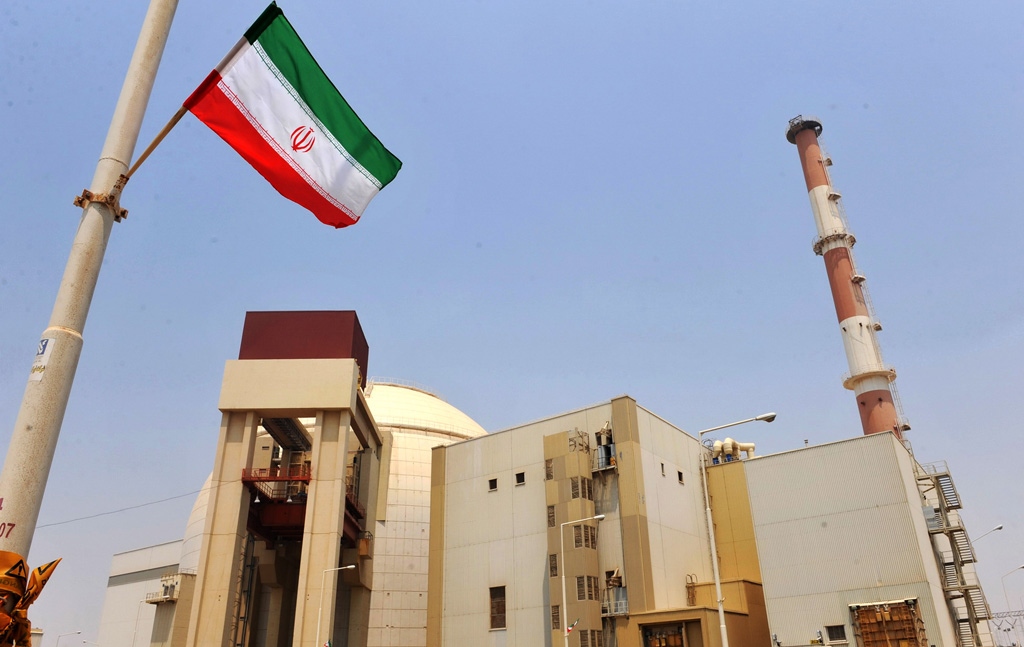Nuclear in Iran
December 7, 2017 | Expert Insights

Naghavi Hosseini, an Iranian MP, has said that any international concern over Iran building nuclear weapons is misplaced. He added that nuclear weapons have no place in the nation’s military strategy.
Background
Iran’s current nuclear program involves several research sites, two uranium mines, a research reactor, and uranium processing facilities. The country ratified the Non-Proliferation Treaty in 1970. Thus, its nuclear program has to be subject to International Atomic Energy Agency (IAEA) verification.
In the 2000s, reports began emerging on Iran running a uranium enrichment program in secret. An investigation by the IAEA revealed that Iran had not declared a number of its nuclear activities to the group. Thus, the nation was subjected to multiple harsh sanctions from the international community. This has cost the nation billions of dollars (estimated $100 billion in oil revenues alone till 2015). It has also lost out on foreign direct investment.
On 2 April 2015, the P5+1 and Iran reached a provisional agreement that sought to lift most of the sanctions in exchange for limits on Iran's nuclear programs extending for at least ten years. When the International Atomic Energy Agency (IAEA) certified that Iran had restricted its sensitive nuclear activities, the UN sanctions were lifted on January 16, 2016.
United States and Iran do not have any formal diplomatic relations or ties. The two nations share an acrimonious relationship. In 2002, US President, George W Bush, referred to Iran as being part of the “axis of evil.”
US President Donald Trump has often been critical of the nuclear deal and often spoken about withdrawing. Recently, he told reporters that he didn’t believe that Iran was living up to the spirit of the deal. He said, “They are not in compliance with the agreement and they certainly are not in the spirit of the agreement in compliance, and I think you’ll see some very strong things taking place if they don’t get themselves in compliance.” He has since decertified the deal.

Analysis
World leaders have pledged their commitment to the Iran nuclear deal after Donald Trump withdrew his support for the landmark agreement. Theresa May, Emmanuel Macron and Angela Merkel released a joint statement affirming their support for the deal. Federica Mogherini, the Foreign Policy Chief of the European Union has also spoken favorably of the deal. Mogherini said, “We cannot afford as the international community to dismantle a nuclear agreement that is working. This deal is not a bilateral agreement ... The international community, and the European Union with it, has clearly indicated that the deal is, and will, continue to be in place.”
Meanwhile, Naghavi Hosseini, an Iranian MP, has said that any international concern over Iran building nuclear weapons is misplaced. He added that nuclear weapons have no place in the nation’s military strategy. In an interview with Al Jazeera he said that the idea of a nuclear bomb made in Iran is no more than a myth. He noted, “This accusation was a lie that America put in the mouths of the international community. I’m telling you, not before, not now and not in the future; nuclear weapons have no place in Iran’s strategy.” He said that Parliament and everyone else must follow by the ‘fatwa’ of the Supreme Leader as it is a religious edict.
Meanwhile, US Secretary of State Rex Tillerson has said that pressure will continue to be applied to Iran over its commitments to the nuclear deal. It is up to the US Congress to decide whether or not to re-apply economic sanctions on Tehran. Tillerson met with Mogherini and stated, “We discussed ... our joint efforts under the Joint Comprehensive Plan of Action [JCPOA] to hold Iran fully compliant with the terms of that deal and fully enforce that agreement.”
Tillerson said Iran "is carrying out a number of other destabilizing actions in the region", including backing the Houthi rebels in Yemen's civil war, deploying weapons and forces in Syria and continuing support for Hezbollah.
"These issues and activities of Iran cannot be ignored and cannot go unanswered, and we intend to continue to take action to ensure Iran understands this is not acceptable to us, and we look forward to working with our European partners in that regard," he said.
Assessment
Our assessment is that it would likely be a misstep by the United States if it re-imposes economic sanctions on Iran. This would free Iran from the rules binding the nuclear deal and will no longer be under the control of the international community. This may result in further instability in the region. Hosseini’s statements indicate that Iran is eager to ensure that it will not be disregarding the rules of the nuclear deal.








Comments